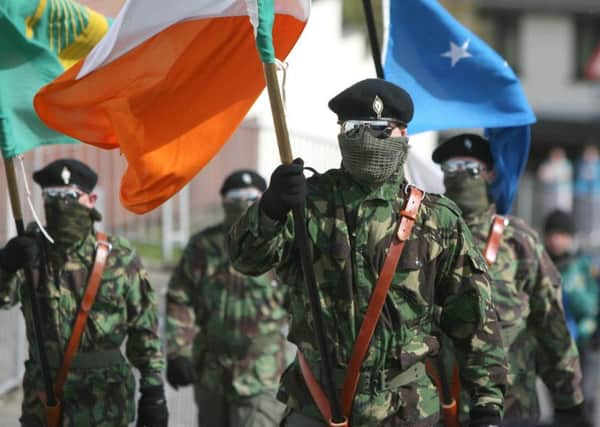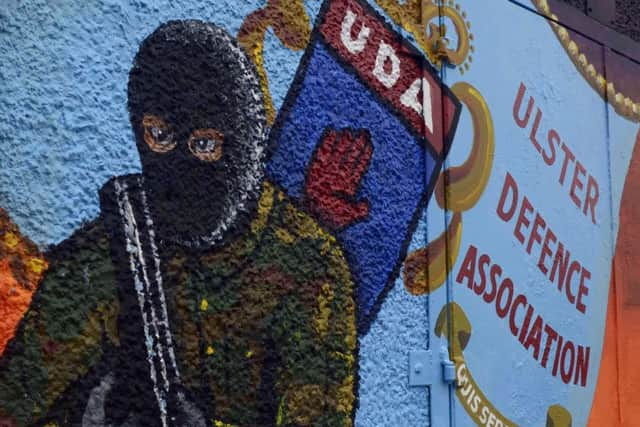Police to get more cash to tackle paramilitary crime


The strategy also includes a pledge from the UK and Irish governments to “consult to consider” new short-term weapon decommissioning mechanisms, if the requirement arises in the future.
The prioritisation of PSNI funding to build investigative capacity for paramilitary criminality and the potential of spending more on community policing are among measures outlined in the Executive’s blueprint for tackling paramilitarism.
Advertisement
Hide AdAdvertisement
Hide AdThe 22-page document is the administration’s response to an independent panel report that recommended actions required to put an end to terrorist organisations.


The panel was set up as part of the landmark Fresh Start political agreement struck between the DUP, Sinn Fein and the UK and Irish governments last year. The accord resolved a political crisis sparked by a murder linked to the Provisional IRA.
The panel, which made 43 recommendations, said paramilitary activity had greatly reduced over the course of the peace process, with the main groups remaining on ceasefire, but some members and former members continued to engage in violence, intimidation and other crime.
Six weeks after the report was published, the Stormont Executive has now revealed a five-year action plan to implement the recommendations. The steps will be supported by £50 million, jointly funded by Stormont and the UK government.
The strategy will see:


Advertisement
Hide AdAdvertisement
Hide Ad• The UK and Irish governments setting up an Independent Reporting Commission (IRC) to monitor progress in ending paramilitarism
• Initiatives to prevent young people being drawn into paramilitarism
• Review of police protocols for engaging with paramilitaries
• Dedicated restorative justice fund and potential centre of excellence
• Reform of trial committal proceedings
Advertisement
Hide AdAdvertisement
Hide Ad• l Review of use of bail, to examine concerns people charged with terror offences are being released from custody too often
• Mechanisms to allow prosecutors to challenge certain terror-linked sentences
• Amendment of employment regulations to remove some obstacles preventing former paramilitaries finding work
• Improving former paramilitaries’ access to financial services, adoption and travel advice
Advertisement
Hide AdAdvertisement
Hide Ad• Steps to expedite process of obtaining US travel visa for former paramilitaries
• Review of separated prison regime for those charged with terror offences
• Address educational under-achievement in areas where paramilitaries remain strong
• Steps to reduce segregation in housing and education.
First Minister Arlene Foster, Deputy First Minister Martin McGuinness and Justice Minister Claire Sugden said the action plan was a “challenging and ambitious” programme of work.
Advertisement
Hide AdAdvertisement
Hide AdIn a joint statement they said: “Delivering this action plan requires recognition of the excellent work under way in communities to support and complete the transition away from paramilitarism.
“It will require partnership working across the Executive and with the UK and Irish Governments, law enforcement agencies, the public, private and voluntary and community sectors, and importantly, with local communities.”